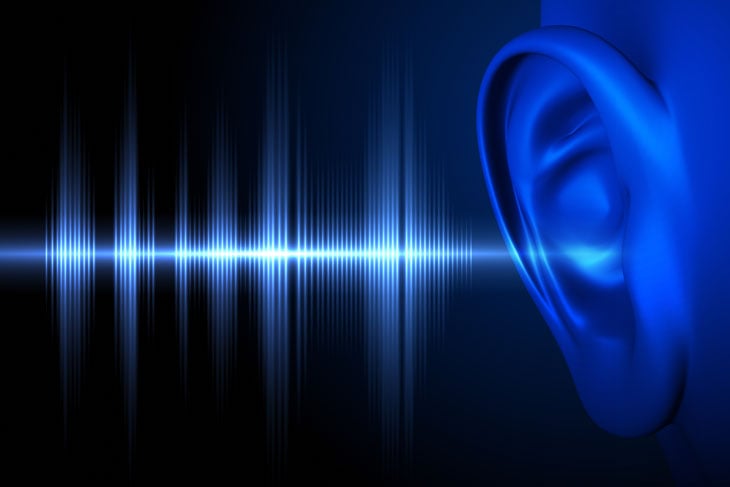
Hearing Health, Hearing Loss & Hearing Aids: What You Need to Know
Updated from the original publication on July 9, 2020.
Living a life in which you are steadily suffering from hearing loss can be difficult. No longer being able to hear the voice of the one you love, or the voice of your children can be heartbreaking. Part of keeping yourself healthy in your senior years is ensuring that your hearing is also in check. Many seniors deny their hearing loss and put off getting their hearing checked which in turn, can prolong the effects of hearing loss.According to the American Speech-Language-Hearing Assocation, seniors with hearing loss are missing five different types of sounds.
1. Frequencies in High Range
This form of hearing loss makes it hard to understand words. For a person with this type of hearing loss, certain words will sound muttered or unclear.
2. Frequencies in Low Range
This type of hearing loss indicates sensorineural damage. This type of hearing loss is often genetic.
3. Soft tones
An individual with conductive hearing loss can hear most sounds if they are loud enough. This is why amplifying sounds with hearing aids is a solution for them. The ears work if the sound is loud enough to get through.
4. Conversations in a noisy room
People with significant hearing loss experience something called recruitment noise. Essentially, background noise can overwhelm everything else and often times can also cause physical distress.
5. Speech of any kind
Profound hearing loss means a person hears no speech. Medical professionals use a classification system to measure hearing loss in decibels – a person with normal hearing measures anywhere from -10 to 15 dB HL (decibels of hearing loss) during a hearing test.
If you are in denial of your hearing loss, or have not gotten your hearing checked recently, you may be missing out on these sounds without knowing it.
Ellen Lafargue is the one of the Center for Hearing and Communication’s leading audiologists, with over 30 years of experience. She has helped many people throughout the years cope with hearing loss. Dr. Larfargue and one of her patients developed six tips to help approach the possible conversation of your hearing loss with your family.
After having that conversation, you may begin to wonder about the solutions to hearing loss. In order to maintain good overall health, it is important to maintain your hearing health. Audicus, one of the leading brands in hearing aids has a list of tips to help your hearing. They recommend completing puzzles, or something to stimulate the brain since the brain plays a large role in hearing. In addition to following tips to improve your hearing, hearing aids are also an option in cases where hearing loss is already present.
Hearing aids have helped seniors worldwide regain the ability to hear soft tones and things they have been missing in the time that their hearing has declined.
But how do they work?
Hearing aids are equipped with small microphones that amplify sound, while computer chips within the hearing aid converts the sound, and adjusts it based on your hearing needs, and the sound is then delivered to you through the speakers in the hearing aids.
A study by Columbia College of Physicians and Surgeons found that while about two-thirds of adults over 70, and four-fifths of adults 85 and up are suffering from hearing loss, only
Meeting with an audiologist can help determine the severity of your hearing loss and move towards finding the correct hearing aid for you. Finding the right style of hearing aid will also depend upon your budget, and how you are able to handle small devices.
In addition to her work as an audiologist, Dr. Lafargue was also instrumental in helping get Congress to pass a bill allowing over-the-counter hearing aids to be sold. If passed into law, this bill would allow basic hearing aids to be sold without expensive audiologist appointments or visits to other hearing health professionals.
With the average cost of hearing aids being $2,300 this bill would make obtaining hearing aids much more cost efficient and in turn raise the number of seniors wearing hearing aids.
There are three main styles of hearing aids.:
1. Canal hearing aids
Canal hearing aids are broken down into 3 types:
-
In-the-canal (ITC)
ITC hearing aids fit inside your specific ear canal and are difficult to see. They are fit for mild to moderately severe hearing loss. Eargo is a hearing aid brand whose ITC design has won multiple awards. They offer special financing for their devices making them more cost efficient. -
Completely-in-the-canal (CIC)
CIC hearing aids are even smaller than ITC hearing aids and are nearly hidden in your ear. They are also built for mild to moderately severe hearing loss.
-
Invisible-in-the-canal (IIC)
IIC hearing aids are almost invisible and can be placed in each day, but some IIC models offer the option to be specially placed in every few months, requiring frequent visits to an audiologist.
2. In the Ear (ITE) hearing aids
ITE hearing aids fit completely inside the outer hear. ITE hearing aids have a large plastic case that holds the electronic parts. These hearing aids are best for mild to severe hearing loss. ITE are a popular choice for hearing aids for seniors because they are easier to remove. Widex offers affordable ITE hearing aids for seniors and is one of the most technologically advanced hearing aid companies.
3. Behind-the-ear (BTE)
BTE hearing aids sit in a plastic case behind your ear. There is a plastic ear mold that sits in the outer ear and directs the sound. A mini-BTE is a smaller option, that fits behind the ear entirely and has a small tube that goes into the ear canal. This style helps to keep earwax from building up and makes sounds clearer. BTE options are also a popular hearing aid for seniors. MDHearing offers quality BTE hearing aids for low cost and have several different options and on-call audiologists to help you find the best fit.
Finding the right hearing aid for you is essential to optimize the benefits of the device. It is also necessary to give you the opportunity to hear clearly again and cherish the voices of your loved ones once more.
If you would like some additional ideas for staying healthy in your senior years, download our free guide today. 
About Morgan Barr
Recently, Presbyterian Senior Living teamed up with the Communication/Journalism Department at Shippensburg University to provide students with professional writing experience. This opportunity allows students to not only learn the ins and outs of blog writing but also offers them a platform for published works. This author is a Communication/Journalism student at Shippensburg University.


